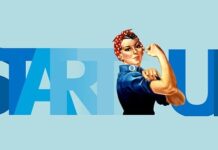By Shrijay Seth
There’s a Zen story attached to the virtue of learning. It speaks of a wise, very learned person whose friend who suggests a trip to the mountains and see a Zen master.
He writes to the master and gets an invite as well.
After many hurdles, he finally reaches the master and the master invites him for a tea.
As the master started to pour tea into the cup, he said to the learned visitor “Tell me what all do you know and what you have learnt? I will share the same.”
Upon hearing this, the person started to speak everything he had learnt in life, shared things about his education, his experience, the degrees he received, the honorary awards and also about his global fame.
And as he is speaking, the Zen master keeps on pouring tea in his cup – after a while, it then starts spilling over. Suddenly the person sees this and tells the master “Master, the cup is full. Stop pouring in more tea.”
The master responds, “This is you. Very full. Empty your cup and then come to me.”
Sometimes, having too much knowledge also can prove harmful. It is easy to be get carried away by the knowledge, success and experience which creates ego.
And no founder has ever succeeded when burdened under their ego – they have become too “full”.
They should stay empty and keep the cup empty. This is the key to be receptive to all the future learnings.
1. Learn from team and peers, partners even children
Learning comes from anywhere only if you are open to get the lessons at any time. Be it anyone from the team, peers, business partners, co-founders, investors. Or even at home while playing around with children.
It is only when you are open, hungry and passionate to learn that you can get the right lessons from practically any sphere of life.
Founders, especially, should “stay empty” to adopt and implement new learnings. With the sources of inspirational learnings aplenty, an empty founder’s cup is a blessing in disguise.
2. Unlearning is as important as learning
With technology and workplace culture evolving, unlearning is the only way to empty the cup and acquire new learnings.
That is the reason why unlearning too is a part of learning skill which requires founders to do away with the all the accumulated learnings that have piled up over the years.
It is a skill in itself that requires mindfulness that blends the ability to stay detached from older learnings.
You might want to stick to your early learnings and rely on your judgements based on that.
But, that does not always help because the world of work & nature of work are evolving and startups are getting dynamic.
The only way out is to reinvent oneself with new and constant learning. Over time, unlearning becomes a habit.
3. Stay receptive to multiple forms of learning
Thinking that learning comes only from books or situations is not the right approach for a founder if one is looking to “fill” the founder’s cup.
Good learning will involve experiences, insights, decisions, human relations or dealing with people, market or feedback from customers.
Be alert and be receptive as learnings from taking wrong decisions too are important.
Learning may also come from the market environment where you get to know about the shifts in customer demand or even the competitor’s success.

Being hungry to know and learn more is the best way to invest oneself in when it comes to getting the knowledge.
A founder’s cup has all the right learning ingredients that come from multiple sources blending into one which makes stays unique in itself.
4. Instilling the (Un) Learning culture
Founders are responsible for fostering the culture within the organization. As mentioned above, the idea of unlearning is crucial for growth.
And the same should be instilled across the organisation by the founders. This is how the startup’s A team moves forward cohesively in one direction and evolves together with their founder.
But again, the onus to pass on and motivate the art of unlearning is on the founder. With the definition of education and professionalism constantly being redefined, institutions like the marketplace and workplace are also changing.
It is quite impossible to stick to old rules and norms when such major transformations are happening.
Unlearning the things accumulated over time calls for making fundamental changes. And one such change is to adapt to the unlearning process as a part of professional culture.
A founder is responsible to create a culture that is open to new learnings and constantly challenges old philosophies.
Concluding Thoughts:
Though it seems difficult to empty the cup at first go, having an awareness to do so is the first step. Starting with founders, a learning attitude demands staying humble, hungry and receptive.
It is only after having set a right learning approach can one evolve well enough to empty the cup as mentioned in the story. Also, not keeping such attitude and values restricted to oneself is important.
Sharing such a philosophy and nurturing the same across the organization plays a major role.
As a wise man would say ‘giving is the best taking’, the founders should be also be sharing such virtues and motivate everyone around to follow the same as this too becomes a part of the major learning process.
About Author:
 Shrijay Seth is an entrepreneur with more than ten years of experience in working with hyper-growing digital commerce companies across the globe. Currently, he runs an eCommerce strategy and Analytics consulting company, along with a LegalTech venture in India called https://www.legalwiz.in/
Shrijay Seth is an entrepreneur with more than ten years of experience in working with hyper-growing digital commerce companies across the globe. Currently, he runs an eCommerce strategy and Analytics consulting company, along with a LegalTech venture in India called https://www.legalwiz.in/












